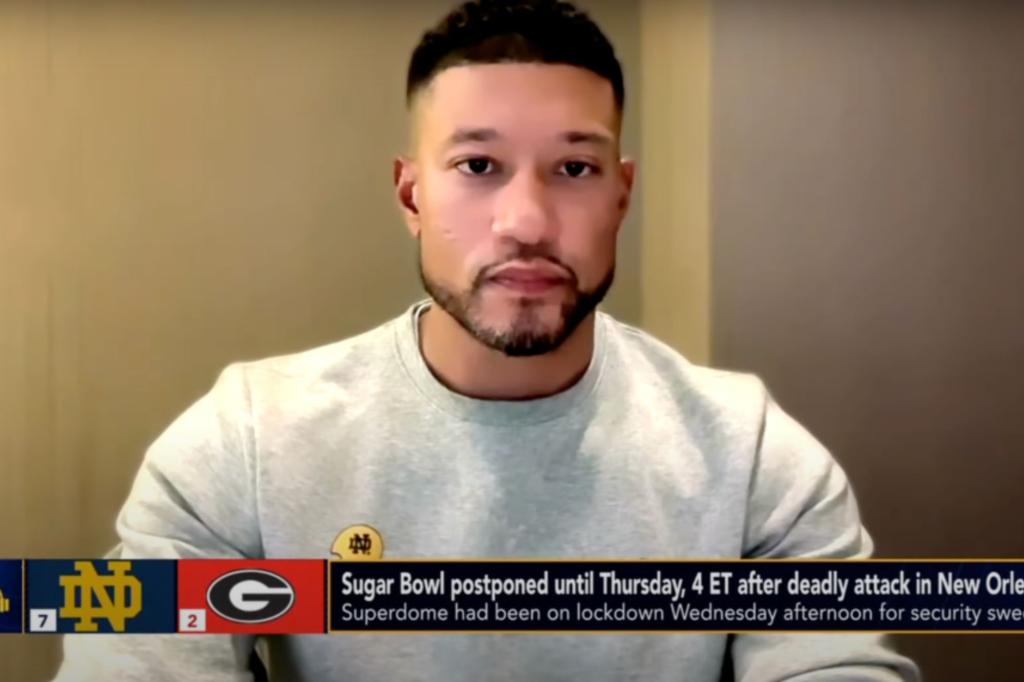Notre Dame coach Marcus Freeman found himself grappling with a tragic event in New Orleans as his team prepared to play a College Football Playoff quarterfinal game at the Sugar Bowl. Following a horrific incident where 15 people were killed and many more injured by a man driving a truck into a crowd on Bourbon Street, Freeman offered his players a message of hope. He stressed the importance of unity and support during tough times, expressing faith that the country would come together to aid the city of New Orleans and the victims of the tragedy.
The suspect, identified as 42-year-old Shamsud-Din Jabbar, was a U.S. Army veteran who had an ISIS flag on his truck. Reports indicated that he was deliberately trying to cause as much harm and chaos as possible. Following a shootout with the police, the suspect was killed. Freeman recounted the challenging day for his team, as they grappled with the shock of the events unfolding in New Orleans. Despite the initial uncertainty and lack of details, the Fighting Irish remained focused on preparing for the game even as it was postponed by a day.
Freeman emphasized the importance of mourning and praying for those affected by the tragedy in New Orleans. He acknowledged the warm welcome the city had extended to the team and expressed solidarity with the victims and their families. As the game was rescheduled for the following day, Freeman and his players began shifting their focus back to football. They prepared to face the second-seeded Bulldogs in the quarterfinals and set their sights on a potential semifinal matchup with Penn State, Texas, or Ohio State.
In the face of adversity, Freeman urged his players to remain focused on the game ahead while honoring the victims of the tragedy. He stressed the need for a balance between mourning the loss and preparing for the opportunity that lay before them. Despite the gravity of the situation, Freeman was resolute in his commitment to ensuring his team was mentally and physically ready for the challenge that awaited them. He anticipated that Georgia coach Kirby Smart would take a similar approach, recognizing the larger perspective of the tragedy in New Orleans.
As Freeman and his team readied themselves for the Sugar Bowl matchup, they understood the weight of the moment and the significance of the game in the context of the tragedy. While they mourned the loss of life and prayed for those affected, they also embraced the opportunity to compete in the College Football Playoff quarterfinals. With a mixture of grief and determination, Freeman guided his players through the emotional journey of facing a tragic event while preparing to compete on the field. The team committed themselves to honoring the victims and city of New Orleans while also focusing on the game that lay ahead.


